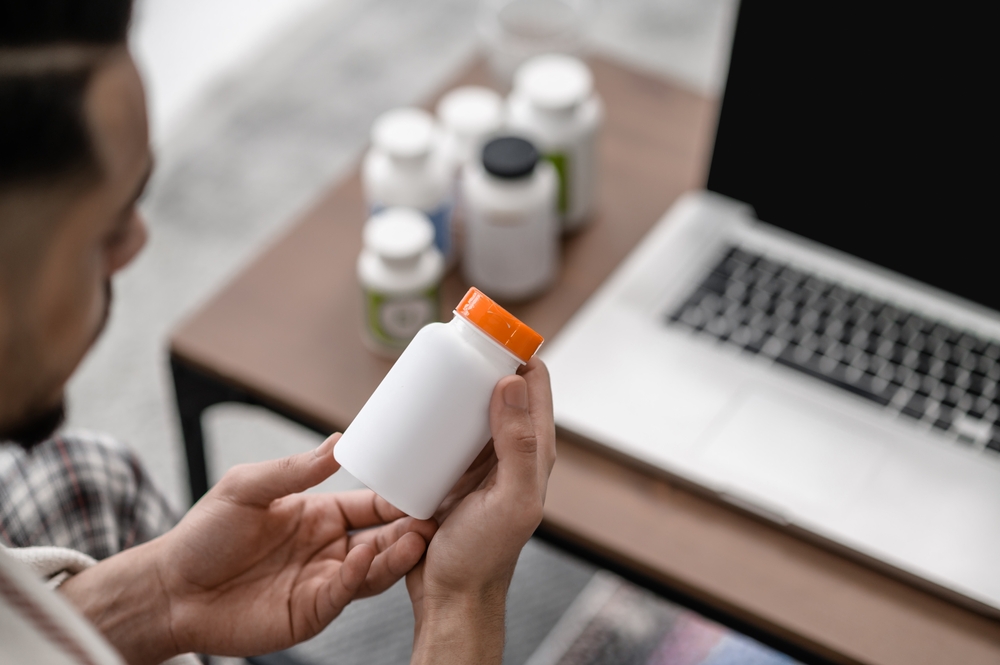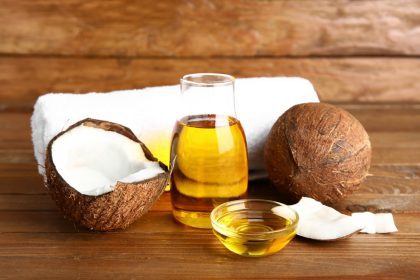You’ve seen them everywhere—glossy ads featuring glowing-skinned celebrities crediting their youthful appearance to collagen supplements. Your Instagram feed is probably peppered with influencers stirring powders into their morning coffee while promising plumper skin, stronger nails, and healthier hair. With the collagen supplement industry booming into a multi-billion dollar behemoth, one question remains—are we all falling for an expensive placebo?
Before you shell out for another month’s supply of those trendy collagen peptides, let’s dig into what science actually tells us about these supplements, beyond the marketing hype and airbrushed promises.
What collagen actually is
Collagen isn’t just another beauty buzzword—it’s the most abundant protein in your body, making up about one-third of your protein composition. Think of it as the structural scaffolding that holds everything together.
Your body contains at least 16 different types of collagen, but types I, II, and III make up 80-90% of the collagen in your body. Type I collagen, found in skin, bones, and tendons, is what most beauty-focused supplements target. It provides the framework that gives your skin its firmness and elasticity.
The cruel irony is that starting around age 25, your collagen production naturally declines about 1% each year. By your mid-40s, your collagen levels have fallen by about 30%. This breakdown manifests as wrinkles, sagging skin, weakened joints, and even thinning hair—all the things collagen supplement companies promise to fix.
The digestion dilemma
Here’s where the collagen conversation gets complicated. Collagen is a large, complex protein made up of chains of amino acids. When you swallow that scoop of collagen powder, your digestive system doesn’t absorb it whole.
Instead, digestive enzymes break collagen down into smaller pieces called peptides and individual amino acids. By the time these components enter your bloodstream, your body doesn’t recognize them as “collagen” anymore—they’re just building blocks that your body might use for various purposes, not necessarily creating new collagen.
The fundamental question becomes whether consuming more collagen actually leads to more collagen production in specific areas like your skin, rather than simply providing protein that your body allocates wherever it needs amino acids most.
What the research actually says
Despite the digestive breakdown, some research does suggest that collagen supplements might deliver on certain promises. The catch? Most studies are small, short-term, or funded by the supplement industry itself.
Several studies show modest improvements in skin elasticity and hydration after 8-12 weeks of collagen supplementation. A 2019 review of 11 studies found that doses of 2.5 to 10 grams of collagen per day improved skin elasticity and hydration. However, these improvements, while statistically significant, were often subtle—not the dramatic transformations shown in before-and-after marketing materials.
For joint health, the evidence is similarly mixed but promising. Some studies show reduced joint pain in athletes and older adults with diagnoses like osteoarthritis after taking collagen supplements. However, these benefits might be similar to what you’d get from other protein sources that provide the same amino acids.
The evidence for hair and nail benefits remains more anecdotal than scientific, with fewer rigorous studies available. One small study showed improved nail growth and reduced brittleness, but more research is needed before drawing firm conclusions.
The bioavailability factor
If you’re still inclined to try collagen supplements, not all forms are created equal. Hydrolyzed collagen has been broken down into smaller peptides, making it easier for your body to absorb. This form appears in most modern supplements and has shown better results in studies than unhydrolyzed versions.
Marine collagen, derived from fish, has smaller particle sizes than bovine or porcine collagen, potentially making it more bioavailable. However, this theoretical advantage doesn’t always translate to better results in actual studies.
Bioavailability can also be affected by how you take collagen. Vitamin C plays a crucial role in collagen synthesis, so taking your supplement with vitamin C-rich foods might help your body make better use of those amino acids. Some supplements include vitamin C for this reason.
The lifestyle connection
Here’s something collagen companies rarely emphasize—supplements can’t overcome lifestyle factors that actively destroy collagen. Smoking, excessive sun exposure, high sugar consumption, and stress all accelerate collagen breakdown.
Even the most expensive supplement can’t outpace the damage from unprotected sun exposure or a diet high in refined carbohydrates and sugar. These factors trigger processes that fragment existing collagen and impair new collagen production.
If you’re spending money on collagen while skipping sunscreen or smoking cigarettes, you’re essentially filling a bucket that has holes in the bottom. Addressing these lifestyle factors might do more for your skin than any supplement.
The alternatives worth considering
If you’re hesitant about collagen supplements or looking for additional approaches, consider focusing on nutrients that support your body’s natural collagen production.
Vitamin C is essential for collagen synthesis, as are minerals like zinc and copper. Proline and glycine, two amino acids abundant in collagen, can be found in various protein sources, including bone broth, chicken, fish, egg whites, and dairy products.
Plant foods rich in antioxidants help protect existing collagen from damage. Berries, leafy greens, and colorful vegetables contain compounds that fight the free radicals that break down collagen.
Topically, ingredients like retinoids have solid research backing their ability to stimulate collagen production when applied to the skin. While they work differently than supplements, they often produce more visible results for skin appearance.
The bottom line on bottles of promise
Collagen supplements fall into a gray area—not miracle workers, but not necessarily snake oil either. The science suggests they might offer modest benefits for skin and joints, though perhaps not as dramatic as marketing claims suggest.
If you decide to try collagen supplements, set realistic expectations. Any benefits will likely be subtle and require consistent use for at least 8-12 weeks. Choose hydrolyzed collagen for better absorption, and consider supplements that include vitamin C and other collagen-supporting nutrients.
Remember that supplements are meant to supplement, not replace, a healthy lifestyle. The most effective approach combines internal and external strategies—good nutrition, sun protection, adequate sleep, stress management, and appropriate skincare.
The truth about collagen supplements isn’t black and white. They might give your body helpful building blocks for collagen production, but they’re just one piece of a much larger puzzle when it comes to maintaining youthful skin, strong joints, and overall health. The real fountain of youth, as unceremonious as it sounds, still comes down to the basics—protect what you have, provide your body with the right tools, and embrace the natural evolution of your body with each passing year.















